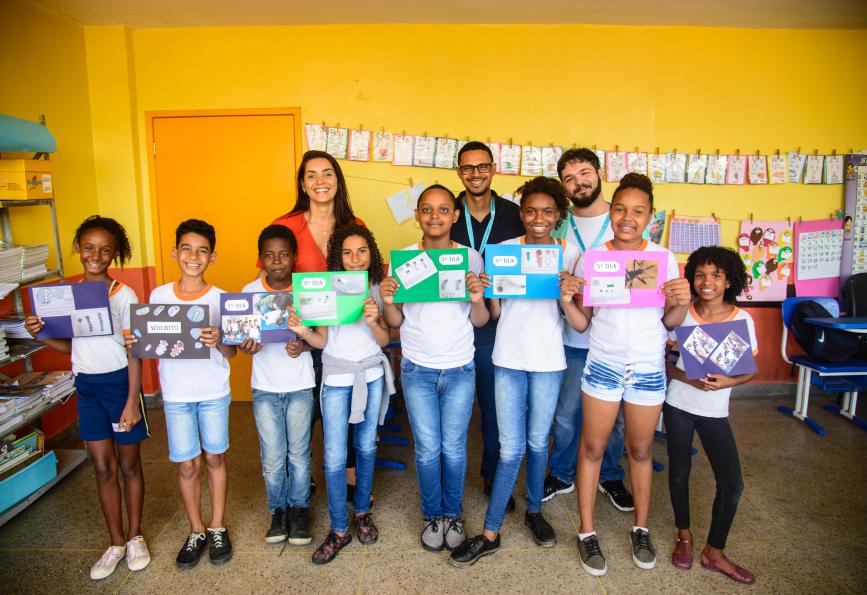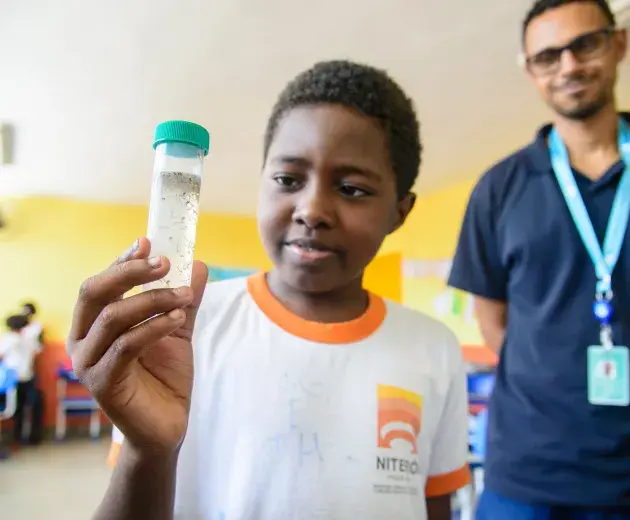
Published date: 23 Feb 2021
Wolbito na Escola is a community engagement initiative in Brazil that’s bringing the science behind the Wolbachia method directly to children in their classrooms.
“Students are multipliers of information,” says Wesley Pimentel de Oliveira – WMP Brazil's Municipal Implementation Support who leads the community release pilots. “And they are agents of behaviour and routine changes in their homes.”
School children across Rio de Janeiro and Niterói are rearing Wolbachia-carrying mosquitoes using the Mosquito Release Containers we most often use to introduce the mosquitoes in the field.
Karine Cardoso teaches 9 to 13 year-olds in Niterói. Over 3 weeks, her students monitor the progress of the eggs and then larvae in their boxes, adding water when necessary and keeping an eye on developments. She remembers the excitement in the room when the transformation from larvae to mosquito took place. “The children, my God, they have very observant eyes,” she says. “To bring this experience to the classroom… and the difference of a not boring class with a different way of learning. I really believed that they learned. And this experiment wasn’t just a knowledge exchange.
“Involving young children in a public health activity – in addition to being a scientific outreach program – students understand that they can be protagonists who have an important role to play in improving health and environmental conditions in their own neighbourhoods.”


